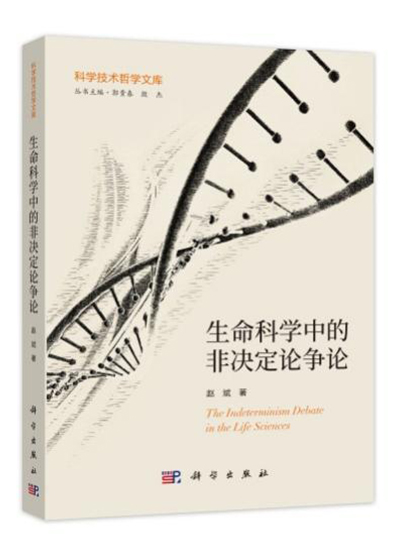Does God play dice in world of lives?

The Indeterminism Debate in the Life Sciences
A classic confrontation in the history of science revolves around the interpretation of quantum mechanics. Einstein famously declared, “God does not play dice,” reflecting his belief in the certainty and predictability of the physical world. Bohr, his counterpart, retorted with, “Stop telling God what to do,” introducing uncertainty into physics through the Copenhagen interpretation. This debate ultimately positioned the Copenhagen School, led by Bohr, as the dominant perspective in quantum mechanics.
A similar discourse exists within the philosophy of biology: the debate between determinism and indeterminism concerning the statistical nature and origins of evolutionary theory. Just as physicists ponder whether quantum theory can be reduced to a causal framework, biologists grapple with whether the statistical underpinnings of evolutionary theory can be explained through causality.
In The Indeterminism Debate in the Life Sciences, Zhao Bin, a professor from Shanxi University’s School of Philosophy, delves into this controversy. His work not only examines evolutionary theory but also extends the discussion to include ontogeny, ecology, neuroscience, theories of consciousness, and cognitive mechanisms.
The pursuit of a definitive understanding of life is a shared instinct and aspiration of humanity. From Thales’ principle of water to Heraclitus’ principle of fire, Pythagoras’ principle of numbers, and the pinnacle of ancient Greek natural philosophy embodied in Plato and Aristotle, thinkers have sought to construct normative frameworks for understanding the universe and life. Over time, this quest fostered a deterministic, teleological interpretation of life within the tradition of Western natural philosophy.
With the establishment and refinement of anatomical and physiological methodologies, Descartes’ mechanistic materialism emerged as a groundbreaking metaphysical framework. This represented a physics-driven scientific revolution and a decisive victory for determinism. This trajectory continued into the modern era, epitomized by the advent of molecular biology, the discovery of the DNA double-helix structure, and its unifying impact on biological sciences.
Despite the dominance of a physicalist worldview since the mechanistic revolution, the life sciences—especially evolutionary biology and neuroscience—remain arenas of contention between determinism and indeterminism. The first indeterministic issue concerns the historical process of evolution, such as whether the trajectory of species evolution is preordained. The second stems from nonlinear causality in complex dynamic systems, exemplified by the challenge of explaining the freedom of consciousness in neuroscience. The third pertains to the material essence of life. For instance, quantum biology has identified four fundamental life processes—enzyme catalysis, sensory mechanisms, energy transfer, and information encoding—that are influenced by quantum effects, indicating that quantum indeterminacy could play a role in life processes.
Li Jianhui is a professor from the School of Philosophy at Beijing Normal University.
Edited by YANG LANLAN
